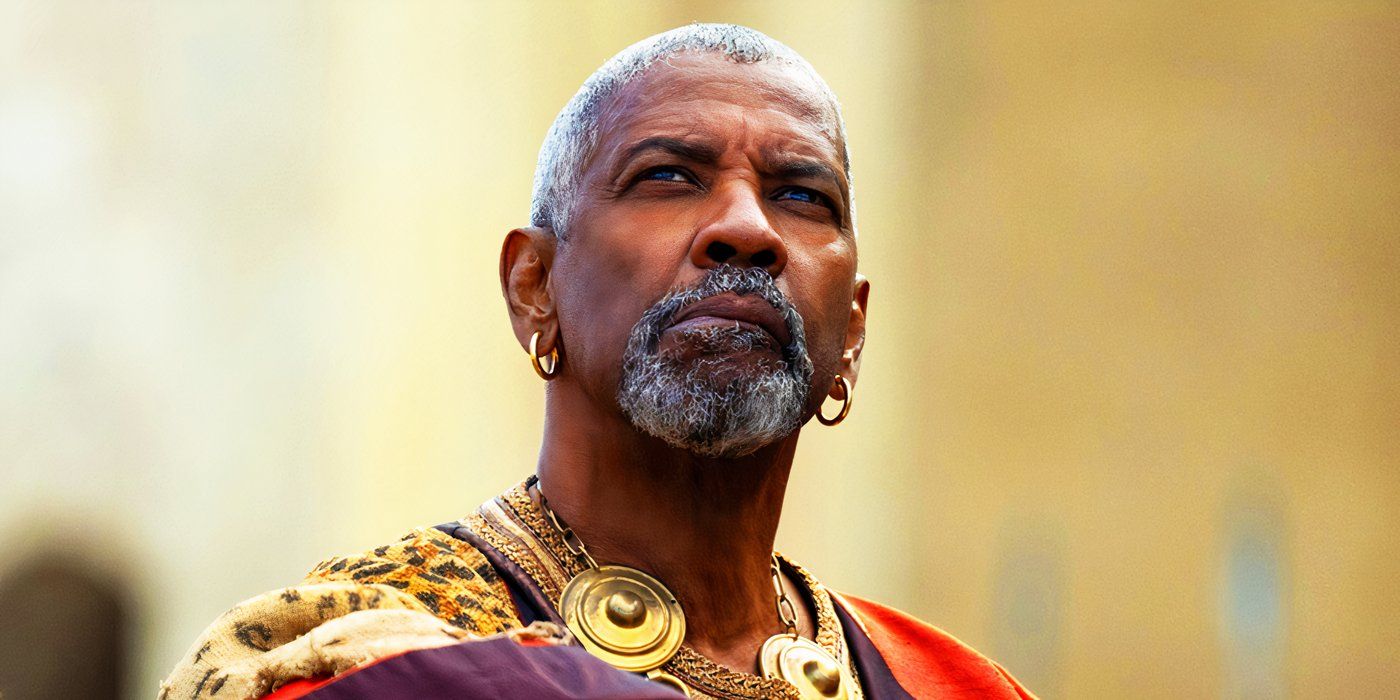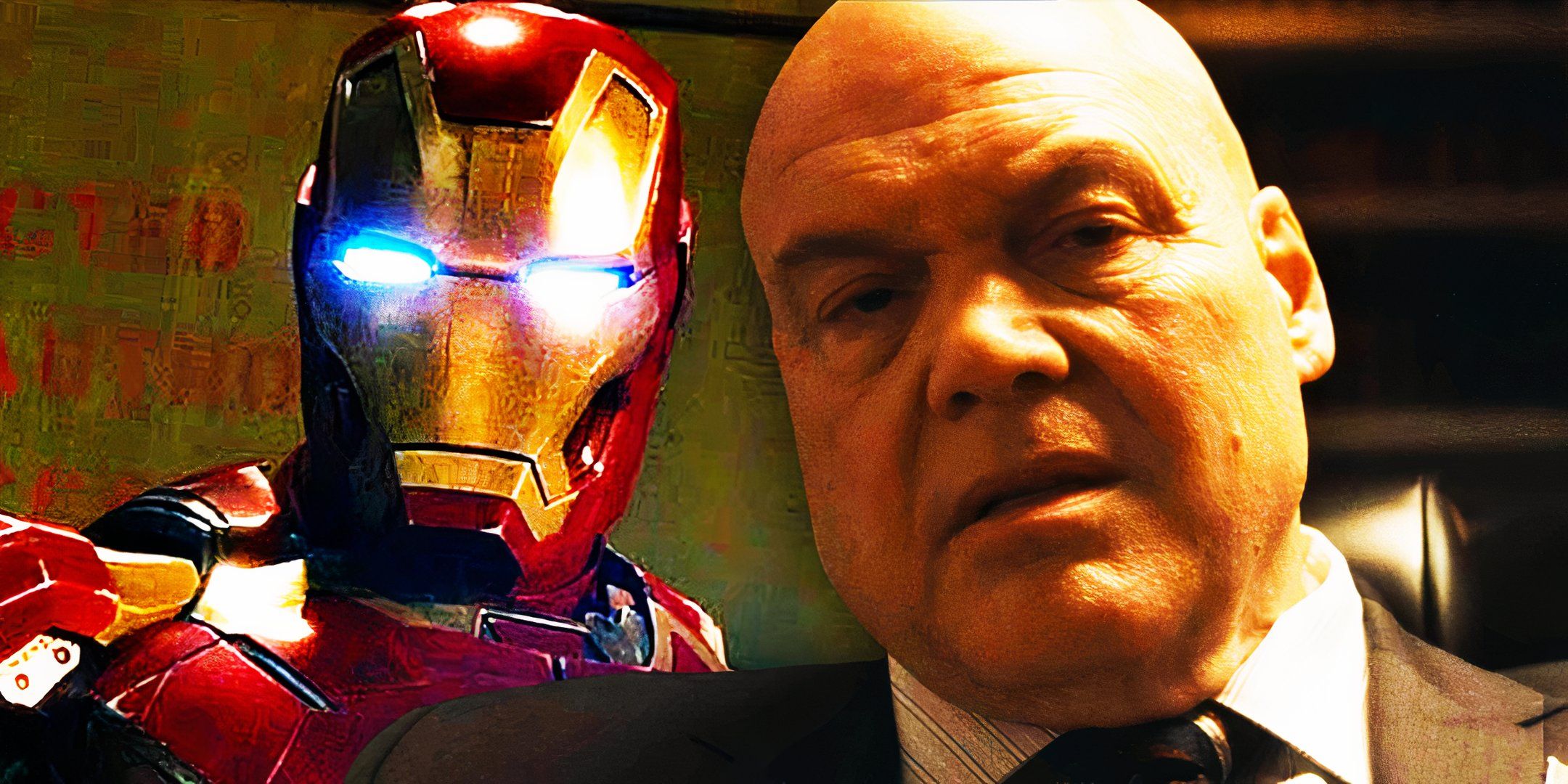Denzel Washington's Controversial Acting Choice For Gladiator 2 Actually Reveals A Problem With The Genre
Multiple actors appearing in Gladiator II have been criticized for what accents they use for their characters, which are all inherently inaccurate. Gladiator II picks up 16 years after Russell Crowe's Maximus' tragic tale of revenge; Connie Nielsen returns as Lucilla, Paul Mescal plays her now-grown son, and Pedro Pascal is the Roman general who is the new target of the protagonist's vengeance. Yet Denzel Washington decidedly emerged as the best performance of the six main Gladiator II actors, playing the scheming Macrinus.
This is despite controversy surrounding Washington's accent in Gladiator II. The actor decided to use his own New York accent, rejecting choosing an African dialect for his character. Washington's reasoning for this was that there was no way of knowing what the historical Gladiator II figure would have actually sounded like, and he worried his speech would simply be awful. However, Washington's response to this Gladiator 2 criticism points out some contradictions within the genre of historical fiction itself, which he merely bypassed in his own way.
Denzel Washington Rejected Using An Accent In Gladiator 2 — When None Of The Characters Have Historically Correct Accents
The Rest Of The Gladiator 2 Cast Use British Accents In Ancient Rome
Close
Washington's line of questioning highlights the issue that none of the other characters are British, even though this is what they sound like in the movie. This is largely because many major period pieces taking place in non-English settings tend to use British accents (such as Les Misérables). The Gladiator 2 characters also wouldn't speak modern English, a language that doesn't even exist yet when the movie is taking place.
For context, the Old English text Beowulf was written several centuries after the timeline of Gladiator II and is still incomprehensible to modern English speakers without extensive study of the language. The spoken language of the Roman Empire was Latin. None of these characters would speak English, none of them would sound British — both are creative choices made for the sake of this movie's marketability.
Gladiator 2's Characters Having Different Accents Actually Makes Sense (Even If The Accents Are The Wrong Ones)
Gladiator 2's Internal Continuity With Accents Sort Of Works
Close
While the accent of choice doesn't necessarily need to be British, it does make sense for the world-building that some characters have similar speech patterns. Lucilla and the Emperors Geta (Joseph Quinn) and Caracalla (Fred Hechinger) are all from the same background of the Roman nobility and probably all sound the same. Pedro Pascal's Acacius' upbringing is less certain, but he also plausibly comes from an adjacent upper class and speaks similarly.
Paul Mescal struggles to maintain a British accent and dips into his real Irish accent in some scenes. While this inconsistency is a problem, it is plausible that he would sort of sound like other characters. Had Lucius stayed in Rome past his childhood, he would have sounded more like his mother. In a historical context, he wouldn't sound Irish, but he would sound like a Roman royal whose speech is affected by elements of other languages due to moving around in Africa for years while still at a young age.
Related Gladiator 3 Can Totally Redeem Gladiator 2 For Cutting May Calamawy's Role Thanks To Macrinus Connection Gladiator 2 may have cut May Calamawy's role, but Gladiator 3 could totally redeem the decision and reveal the truth about her character.
Macrinus would sound very different from the rest of the cast — his speech likely being cemented as an adult before he was captured and brought to Rome — assuming they are all speaking the same language with accents that come from their native languages. For better or for worse, Denzel Washington made the choice to not attempt the modern form of what would be his character's voice in Gladiator II. However, his New York accent is really only asking for the same suspension of disbelief as is granted to the other characters.











COMMENTS